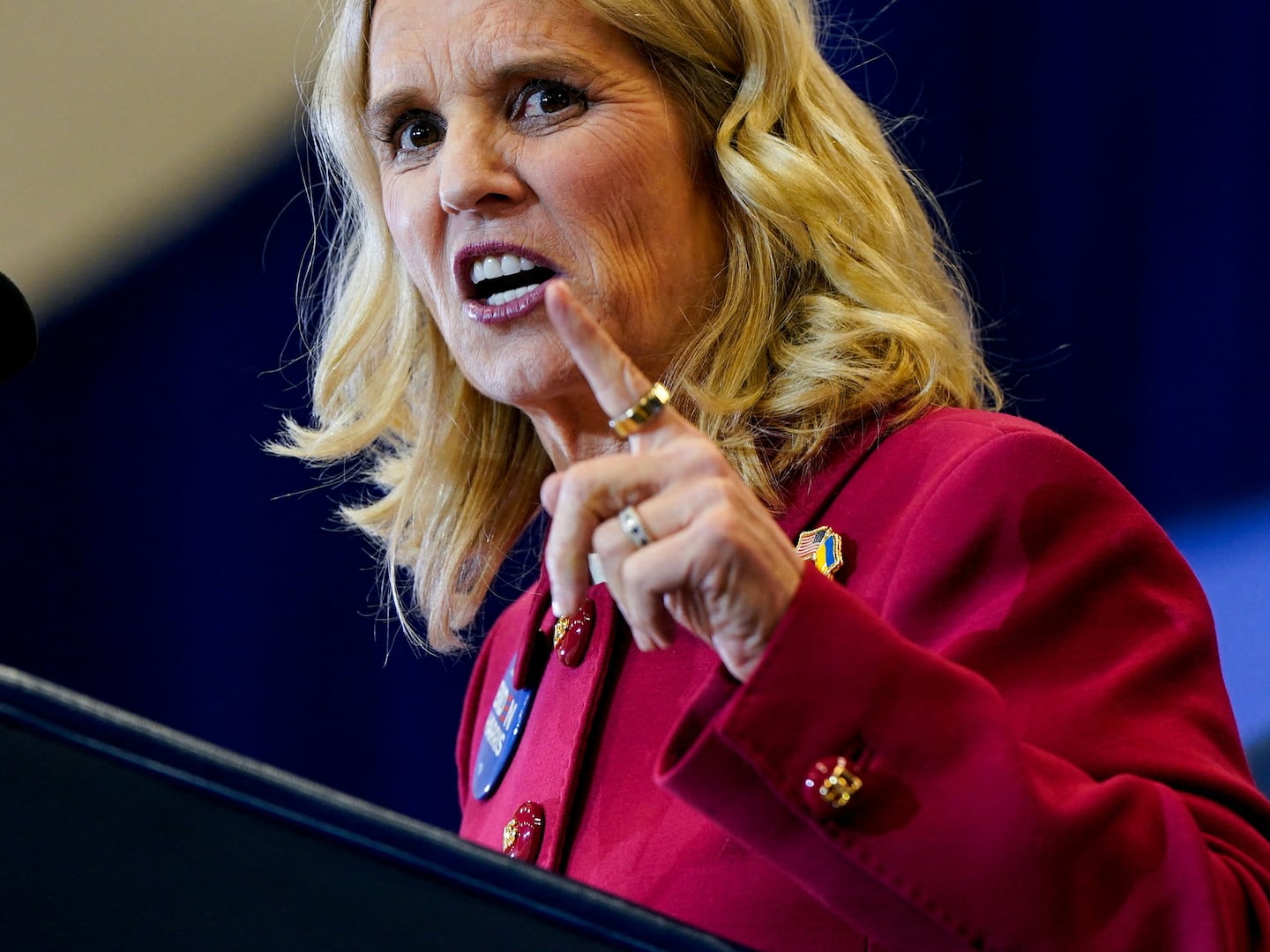
For two years now, as a candidate and as president-elect, Barack Obama has steadfastly called Afghanistan the “central front in the war against terror” and vowed to make defeating Al Qaeda and the Taliban “the top priority it should be.” Tackling foreign policy on Day One, he has invited Gen. David Petraeus, the recently installed Central Command chief responsible for the Middle East and much of South Asia, to the Oval Office today.
But as the new president takes charge of the Afghan conflict, to which George W. Bush recently committed additional troops, his foreign-policy team is getting nervous.
“You’re beginning to hear the word ‘quagmire’ being whispered in the corridors,” said one transition-team adviser. “What’s the definition of victory? What’s our exit strategy?”
Richard Holbrooke, tipped as special envoy to the region, has called the US foreign-aid program in Afghanistan “the single worst” he’s seen since Vietnam. “It is a recruiting tool for the Taliban.”
Bruce Riedel, a Middle East analyst and 29-year veteran of the Central Intelligence Agency, has emerged as a key adviser on Afghanistan and Pakistan. His assessment of the options, says a source working with the transition team, is likely to be filtered into the broader, government-wide policy review that Obama’s team will commission as its first order of foreign policy business.
Obama also urged Vice President-elect Biden to visit Afghanistan and Pakistan in his final days as chairman of the Senate Foreign Relations Committee because he wanted a fresh, independent view of what a flood of studies have warned is a dire and deteriorating situation. Sure enough, both Biden and his fellow traveler, Lindsey Graham, concluded that “things are going to get tougher in Afghanistan” before they get better, with casualties likely to increase as the 30,000 more troops are deployed.
Meanwhile, Petraeus is conducting his own policy review of his entire region, which is scheduled to be completed in late February, but he will do doubt share its conclusions so far with the president when they meet.
In her confirmation hearings last week, Secretary of State-designate Hillary Clinton dubbed the administration’s new approach to Afghanistan a “more for more” strategy, involving not only more American forces (some military analysts predict that as many as eight to ten brigades, or 60,000 to 75,000 troops, will ultimately be required for five to ten years), but also more support from America’s NATO allies and better governance from Afghan president Hamid Karzai.
Pentagon sources say it’s likely that France will announce after Obama’s inauguration that it will add a “significant” number of troops to the roughly 3,500 deployed in Afghanistan as part of the NATO alliance effort.
A larger and better coordinated NATO force in the region is expected to be central to Obama’s approach, experts say. While all European states except Cyprus and Malta have troops to Afghanistan, only six have deployed contingents of more than 1,000. Austria, for instance, has sent one soldier. Several countries, including Germany, have virtually barred their troops from engaging in combat.
“The NATO contribution is a joke; the alliance does not know how to fight,” said Pierre Lellouche, a member of the French Parliament who has closely monitored French forces in Afghanistan.
Although there has not been an official appointment, sources close to Hillary Clinton say Obama has approved her request to make veteran diplomat Richard Holbrooke a special emissary to the region. It is still unclear whether Riedel will accept a post in the new administration, although his views have been critical to the formulation of the Obama administration’s statements about the region.
Riedel advocates a tougher approach to Pakistan’s military and intelligence services, elements of which have been supporting Islamic militants, and he wants to strengthen the civilian government of President Asif Ali Zardari, widower of Benazir Bhutto, the slain prime minister. Riedel has also promoted the now widely accepted notion that stabilizing Afghanistan requires a regional approach that includes Iran, India, and Iraq, and even Russia. Insurgents are far more likely to win when they have sources of support in a neighboring country, according to a Pentagon-commissioned study in 2008 of 90 modern insurgencies.
Sen. Jack Reed (D-RI), an influential member of the Senate Armed Services Committee, says the two main elements of Obama’s approach to the region will be corralling and stabilizing Pakistan and promoting economic and social development in Afghanistan. “This conflict is not one-dimensional,” Sen. Reed said.
Yet Holbrooke, speaking at a conference in the fall, called America’s foreign aid program in Afghanistan “the single worst” he’s seen since Vietnam. “It is a recruiting tool for the Taliban,” he said.
Holbrooke also savaged America’s efforts against drug trafficking, now estimated to account for one-half of Afghanistan’s GNP, arguing that it targets the farmers who cultivate poppy rather than the drug lords who profit the most from it.
At her confirmation hearings, Clinton joined the chorus of Afghan analysts who have been extremely critical of corruption and inefficiency in the government of Karzai, who is seeking re-election this fall. But Barnett Rubin, a leading expert on Afghanistan at New York University, says most of the nearly $6 billion for humanitarian and development assistance in Afghanistan has gone to nongovernmental organizations and private contractors, not to the Afghan government.
“We have starved this government of funds and true support,” Rubin told me in an interview. Karzai has no control over two-thirds of the development funds, no control over the counter-narcotics budget, and no control over most of the military activity in the country. So “it is unfair to blame him for what the US government won’t let him do,” he said.
David Kilcullen, a private consultant who previously worked with Gen. Petraeus and Secretary of State Condoleezza Rice on counter-insurgency in Iraq and Afghanistan, says that while there is no consensus about Karzai, “there is a sense that we have overpersonalized the issue and that what we should be doing is working to strengthen government at the district and provincial levels, encourage reforms, strengthen Afghan-legal and civic institutions, and do what we can to help Karzai govern well.”
According to those familiar with his thinking, Gen. Petraeus has also come around to this grudging conclusion—in part because of the lack of plausible alternatives to Karzai. It was rumored in the fall that Zalmay Khalilzad, the Afghan-American diplomat who is currently US ambassador to the United Nations and was formerly ambassador to Afghanistan and Iraq, was interested in running for president, but he ruled that out in an interview late last month.
Gen. Petraeus has said in interviews that while a “surge” of forces and some of the counterinsurgency tactics he pioneered in Iraq may be effective in Afghanistan, too, the two countries are very different, and Aghanistan will require a different overall approach. Those familiar with the general’s thinking say he agrees with the Obama team about pursuing a regional solution, better-coordinated NATO support, and more effective, less corrupt local governments.
“It’s the governance part of this that keeps me awake at night,” said Seth Jones, a Rand analyst who has advised both Republicans and Democrats on Afghanistan, which is 50 percent larger than Iraq with 4 million more people, no oil, and some of the most challenging terrain on the planet.
Afghanistan’s internal development was not a priority for the Bush administration; only half of the more than $10 billion earmarked for non-military aid authorized ever arrived, and a 2006 State Department audit of the programs to train Afghan police found that about half of the 70,000 Afghans whom the administration claimed to have trained were not ready to be deployed.
The challenge for President Obama, says James S. Robbins, a former Pentagon official now with the American Foreign Policy Council in Washington, is to set reasonable goals for establishing order in the country without trying to turn into a Jeffersonian democracy.
“We must prepare for a long, hard slog just to stabilize the situation,” agreed Francis “Bing” West, a former defense official and military analyst. “But as for nation building and transforming Afghan society, I fear that may be a bridge too far.”
Judith Miller is an author and a Pulitzer Prize-winning former investigative reporter for The New York Times. She is now an adjunct fellow at Manhattan Institute, a contributing editor to its magazine, City Journal, and a Fox News commentator.






